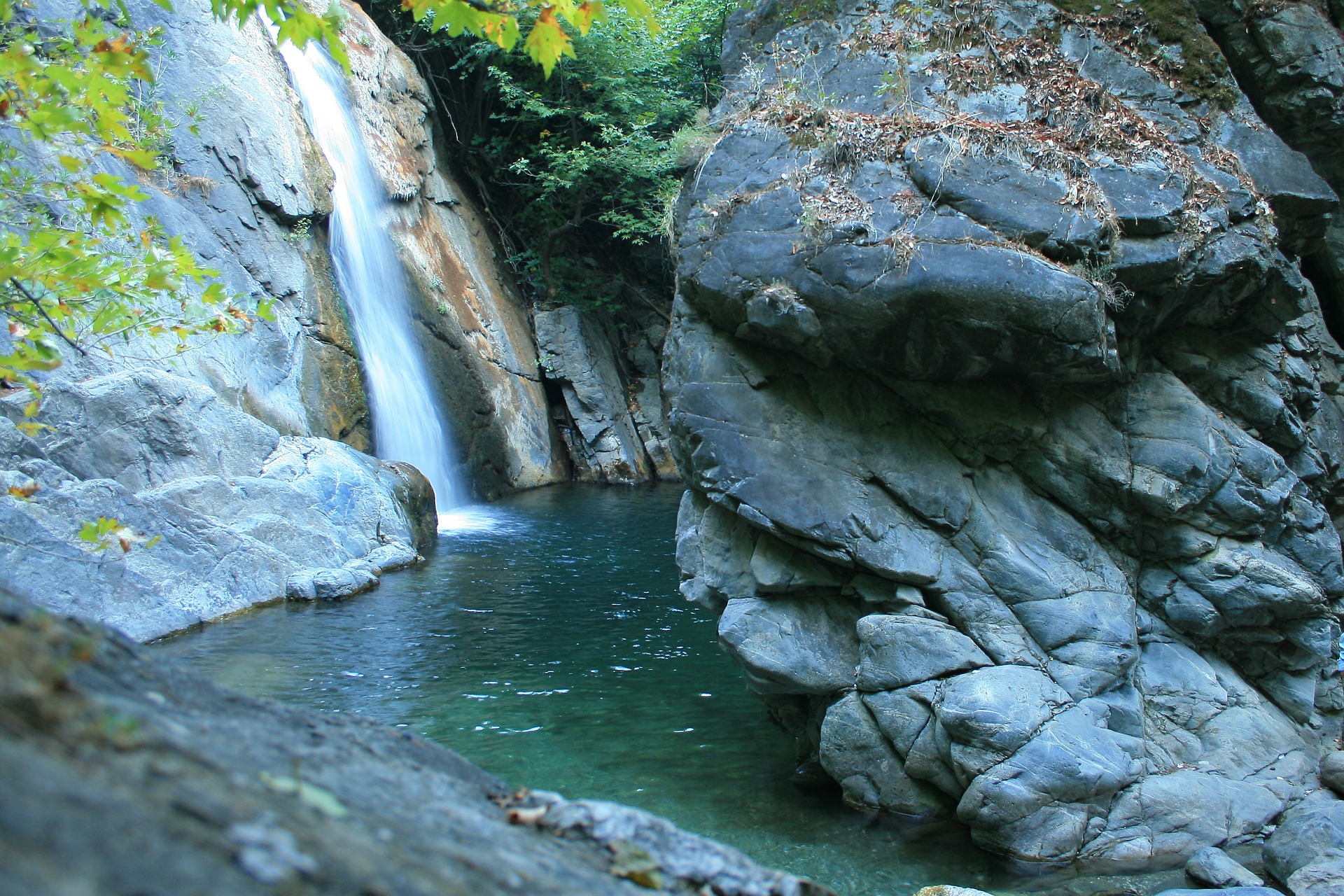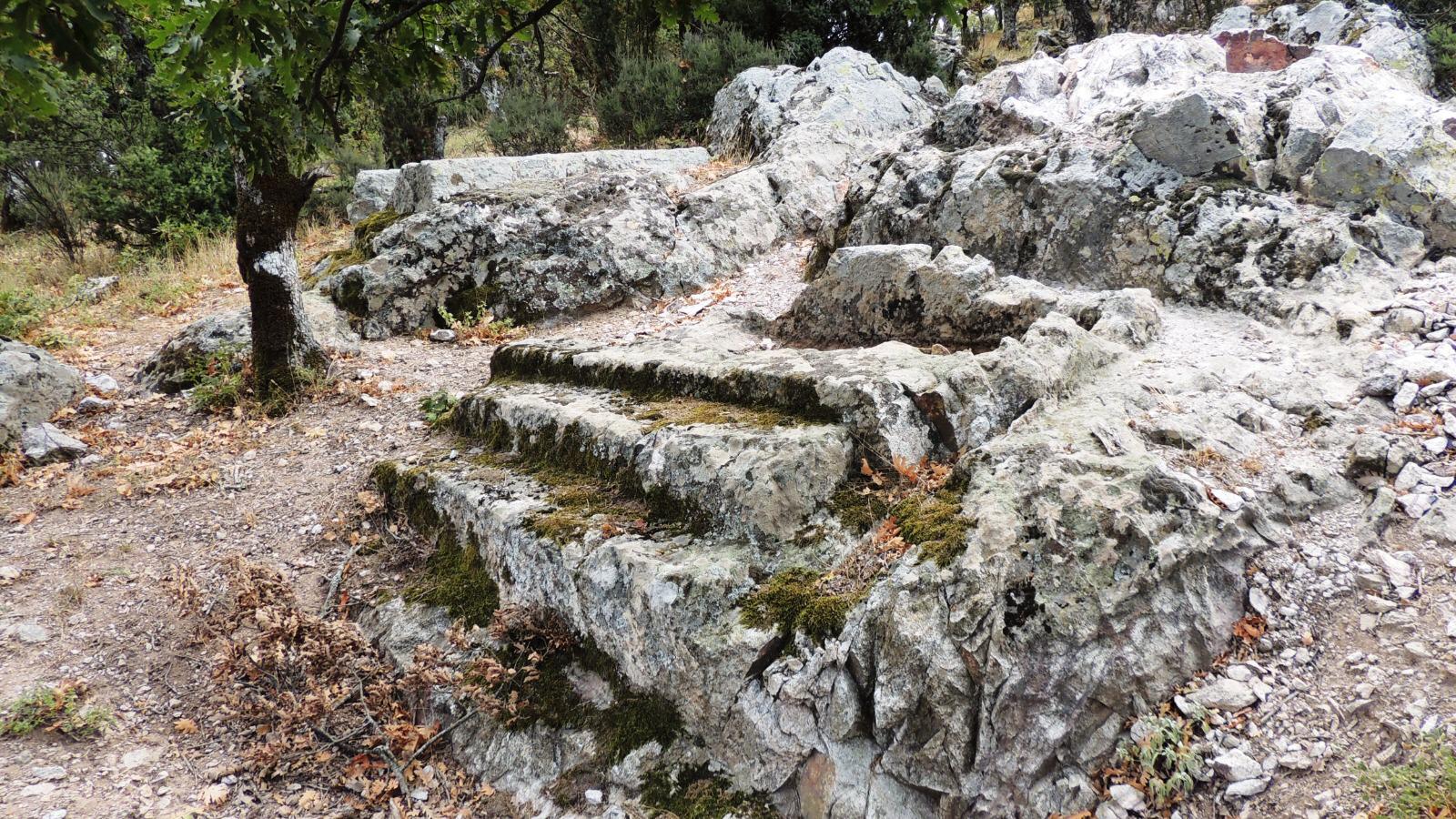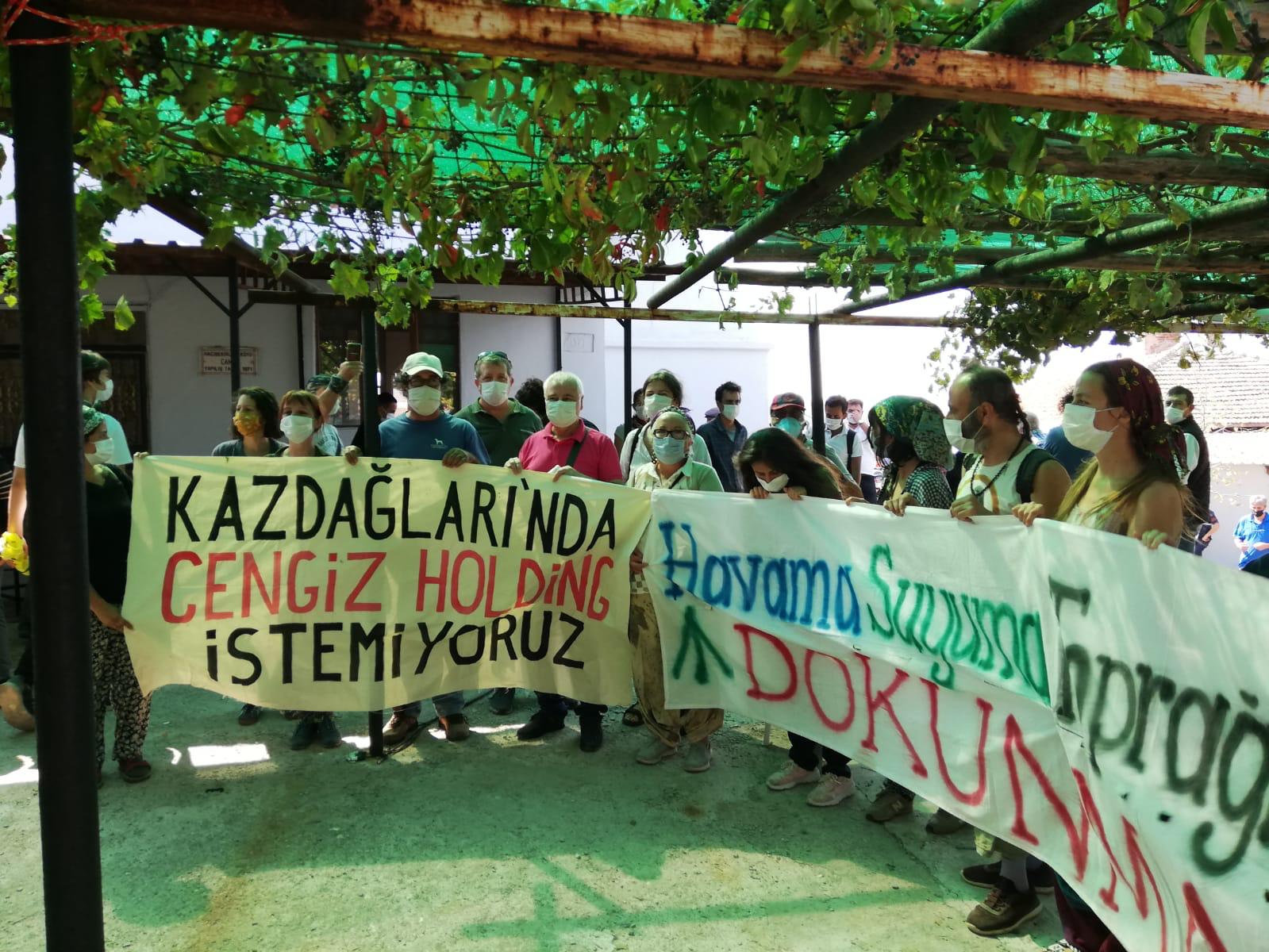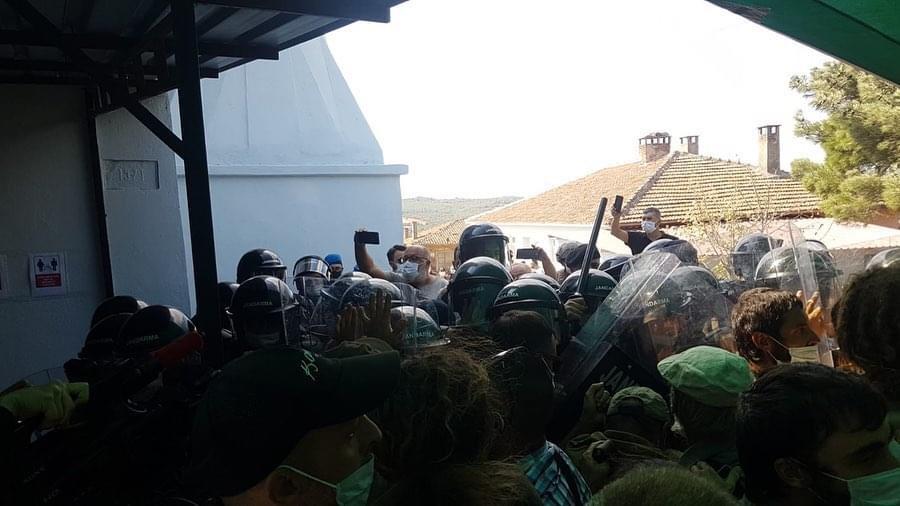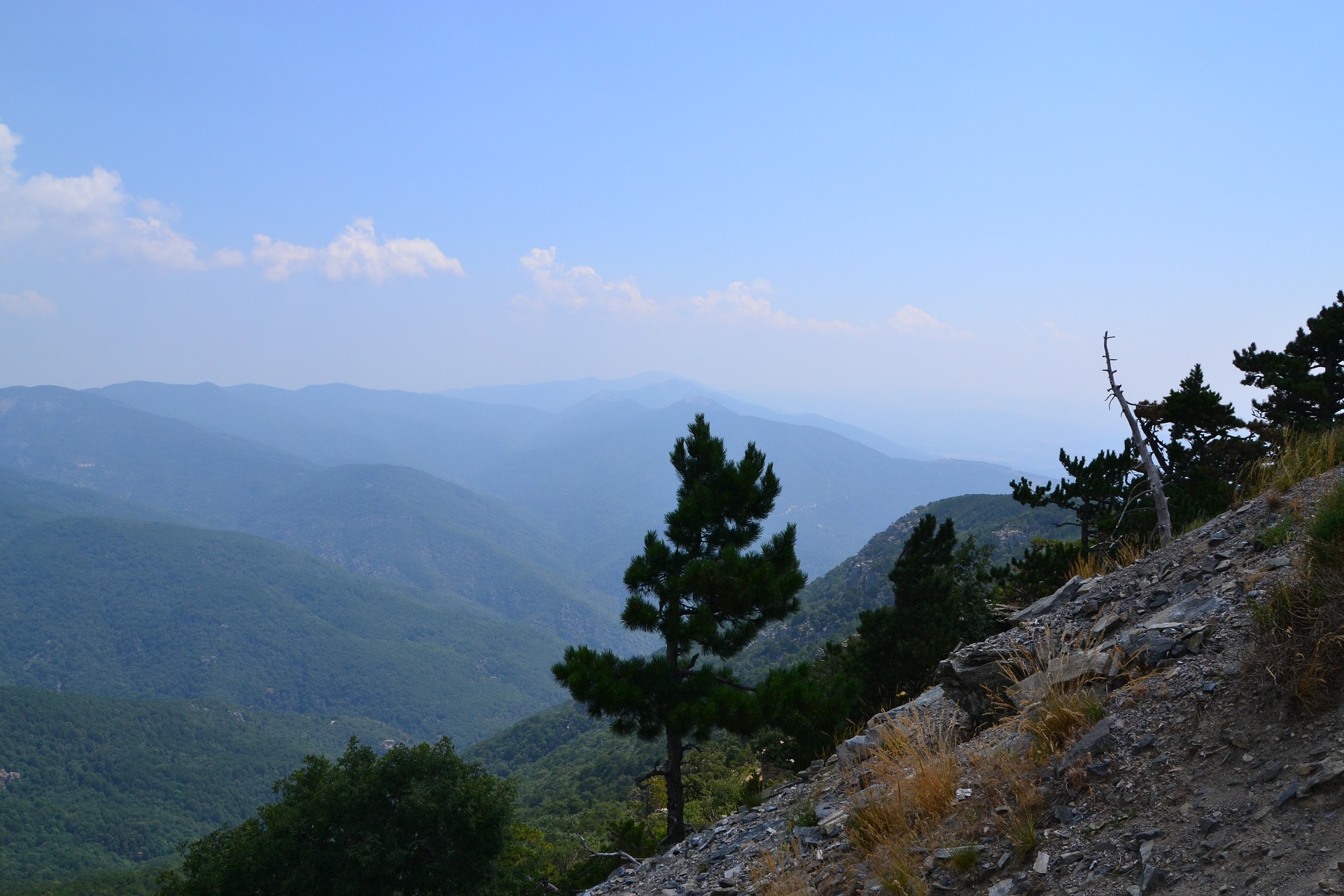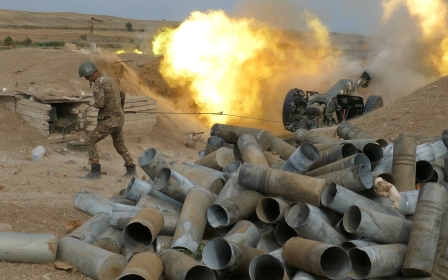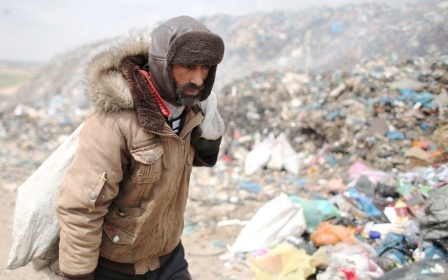Turkey's Mount Ida: The frontline between mining giants and local people
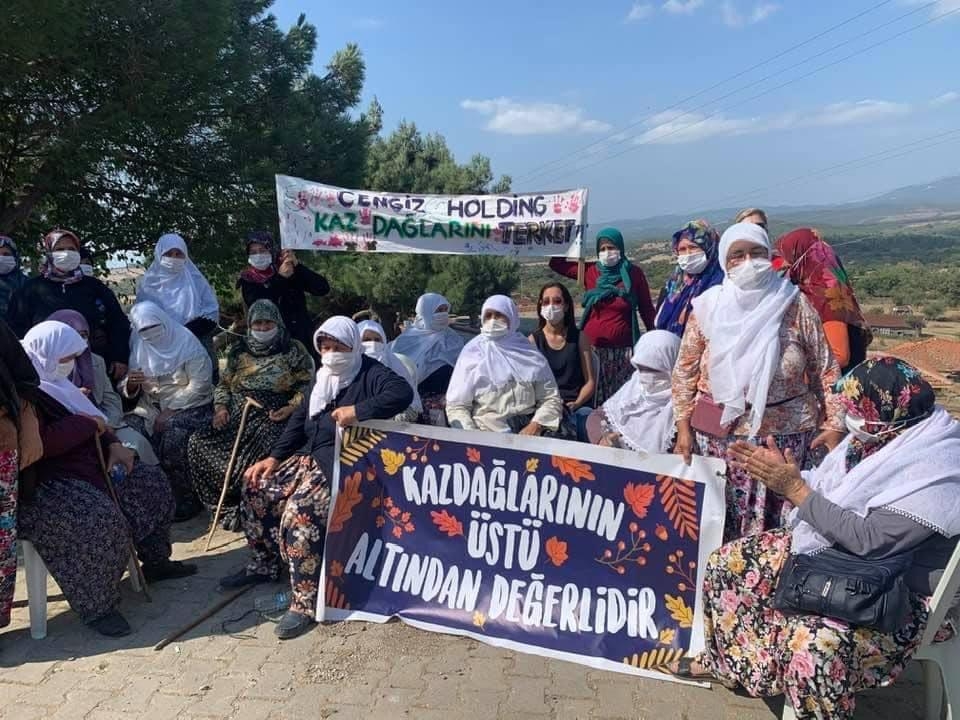
Turkey is a land of outstanding natural beauty, with a rich cultural heritage stretching back thousands of years.
But in recent decades much of this heritage has come under threat, as the government and multinational corporations look to extract the land's natural resources, regardless of the locale.
Mining projects across the country have risked undermining not only the natural and historical heritage of the nation, but also the modern-day lives of those living in rural areas.
'Wildlife will be affected by the project. The forest ecosystem will be lost. There are also ancient cities in the project area'
- Suheyla Dogan, Kazdagi Association
The latest frontline on the clash between environmental activists and rapacious energy firms is Mount Ida (Kazdagi in Turkish), in northwestern Turkey, a 700-square kilometre massif that straddles Balikesir and Canakkale provinces.
Cengiz Holding, a conglomerate close to the government of President Recep Tayyip Erdogan, is the latest company to set its sights on the copper deposits under the mountain.
New MEE newsletter: Jerusalem Dispatch
Sign up to get the latest insights and analysis on Israel-Palestine, alongside Turkey Unpacked and other MEE newsletters
According to the Turkish Foundation for Combating Soil Erosion (TEMA), licenses have been issued for gold and copper mining operations that cover around 79 percent of the area.
"Wildlife will be affected by the project. The forest ecosystem will be lost. There are also ancient cities in the project area... they accept it in their reports, there is an ancient city only 100m away from the project site," Suheyla Dogan, of the Kazdagi Association for Protecting Natural and Cultural Heritage, told Middle East Eye.
The region is a designated national park, with a wide variety of flaura and fauna, a number of villages and the remains of little-studied ancient buildings.
The TEMA report says scientists had "identified 800 different plant species to date in the region", which they added was home to "various cultural heritage sites, whose areas cover 103,000 hectares of land".
Mount Ida was a significant site in Greek antiquity and is referenced 47 times by Homer in his Iliad. The poet describes it as “wooded, many-fountained and mother of wild beasts".
Activists have warned that all of this is under threat if major mining projects are allowed to go ahead.
The most recent attempts have come from the Canadian gold mining company Alamos Gold and from Cengiz Holding.
Major protests against Alamos Gold's activities first broke last year, with thousands of people swarming onto Mount Ida in opposition to their plans in August 2019.
TEMA said that the company's mining operations had already resulted in the destruction of hundreds of thousands of trees, far higher than the 46,000 originally estimated by the company.
The pressure imposed by environmental protests eventually led to the company halting its activities.
Local pushback
Numerous organisations have been established to fight back against the planned mining operations.
The Kazdagi Association for Protecting Natural and Cultural Heritage is one of those, and its members have repeatedly faced arrests and fines for their opposition to mining activities.
Dogan, who has received three 10,000 lira ($1,271) fines as part of her involvement with the group, said that one of the difficulties they faced in pushing back against the project was the promise of employment that companies offered locals in the region.
"People don’t really make enough money from agriculture nowadays so this is good for many young people to find a job," she explained.
"Some of them don’t see the real danger so they accept the company’s position."
A 2004 mining law passed by the then relatively new Justice and Development Party (AKP) government opened up much of the country's previously protected forestry to mining, and prompted a flurry of foreign companies to start up operations in Turkey, attracted by low tax brackets.
Since then, further laws have expanded the areas available for mining as the government pushed for greater foreign investment and job creation.
Nevertheless, despite attempts by Cengiz Holding to win hearts and minds through the construction, many locals have joined with environmental campaigners in opposing the project.
They were successful in disrupting an environmental impact report meeting on 16 September, partly by arguing that the gathering violated Covid-19 social distancing rules.
"I started shouting and using the microphone and said 'this meeting should be cancelled' and all our friends and villagers started shouting 'cancel this meeting, cancel this meeting' because of the pandemic and they couldn’t resist our protests," said Dogan.
In response to their demonstration, security forces fired tear gas and dispersed the activists - but they were nevertheless successful in throwing a spanner in the works of the powerful company.
Dogan said the preparation of an environmental impact assessment by the company would ultimately take around six to eight months. If it is then approved, the campaigners plan to pursue legal action.
'Crisis era'
The struggle on Mount Ida is just one of many examples of what environmental activists say is a mentality by the Turkish government that places construction and business interests ahead of conservation and climate concerns.
The long planned Istanbul canal project, mining in the mountains of Artvin (another Cengiz Holding endeavour), the flooding of the ancient town of Hasankeyf and the damming of the Tigris are just a few of the instances that have raised concerns domestically and internationally about the country's environmental direction.
Even the 2013 anti-government protests, which saw millions taking to the streets of Turkey to oppose then Prime Minister Recep Tayyip Erdogan's rule, were sparked off by the attempted demolition of Gezi Park, one of the last green spaces in Istanbul.
On 21 September, activists in Turkey launched a new Green Party with an aim to challenge this and to highlight on a political platform the risks to the country's green landscapes.
Emine Ozkan, one of the party's spokespeople, told MEE that the world was entering a "crisis era" for climate change and environmental damage and that Turkey's government had been one of the worst offenders.
"Since coming to power in 2002, the AKP government has adopted a human-centered, anthropocentric approach that values nature as a resource to be exploited for human benefit," she said.
"For the last 20 years, there has not been a single day where we have not seen an image of eco-massacre on the media: mining projects, hydroelectric power plants and nuclear reactors, each bringing alarming environmental concerns are being built or planned in many parts of the country."
She added that Turkey's carbon emissions had increased 140 percent since 1990 and that the country is currently the 15th largest greenhouse gas emitter in the world.
Despite the poor environmental standards in Turkey (not to mention the wider world) she said she hoped the new party could, politically, express the wishes of the country's wide-ranging, grassroots movements.
"In Turkey, we are exploiting and destroying nature on an unprecedented scale, deepening and widening the impacts of the environmental damage, such as the plundering of natural resources, the loss of biodiversity, the increase in desertification, deforestation and the reduction or
extinction of a vast array of species," she said.
"However, we are also witnessing the emergence of unprecedented grassroots movements fighting against these exploitations that are ruining their lives, their livelihood and their homeland. Even though environmental issues are considered a 'luxury' by some, these grassroot movements show that the environment is not an abstract, distant problem."
Middle East Eye delivers independent and unrivalled coverage and analysis of the Middle East, North Africa and beyond. To learn more about republishing this content and the associated fees, please fill out this form. More about MEE can be found here.


